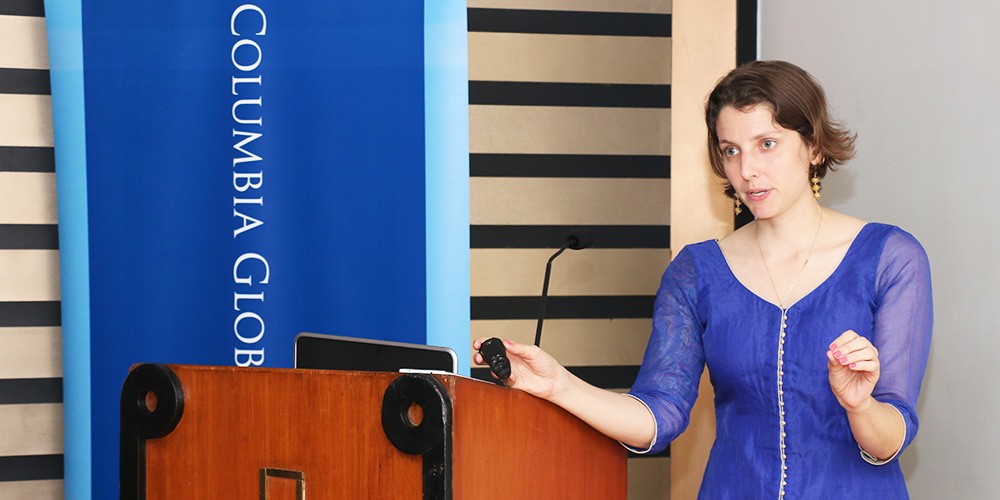Groundwater and Group Interest

Are rural communities willing to pay for clean drinking water? How does household income influence the decision making of citizens regarding prioritizing water for agriculture or drinking purposes? How do you provide water to people in a sustainable manner? What are the incentives for a community to manage its common water resources?
Dr. Katherine Alfredo, a research scientist from Earth Institute, Columbia University presented her ongoing research on some of these complex questions in a Lecture and Discussion organized by the Columbia Global Centers | Mumbai. The Lecture was the first in a series of activities planned by the Center around the issue of Groundwater that has emerged as a major concern across India today.
Dr. Alfredo illustrated how professionals often interpret sustainability within their own realm of specialization. While engineers turn to technology, geochemists rely on the source of water and the knowledge of switching sources. Meanwhile, social scientists and economists put ‘users’ at the core of their solutions. Dr. Alfredo’s research takes an inter-disciplinary approach to fluoride treatment that covers the entire spectrum from the source to the user.
There are 179 villages in eastern Maharashtra, where Dr. Alfredo is conducting her field research, that are entirely affected by fluoride. In other words, these villages have no alternate source of water. In the light of its failure to bring in piped water, the state government sets up defluoridation treatment plants that require a skilled operator or technician to run it. While a contractor operates the treatment plant for five years, it is handed over to the community subsequently.
Moving beyond theoretical concepts of community participation in water management and ownership issues, Dr. Alfredo is researching the drivers of community action from a bottom-up perspective. Her socio-economic analysis preliminarily probed knowledge and attitudes of citizens towards such treatment plants, the quality of water available, the economic value of defluoridation to villages and the willingness of citizens to contribute in cash or kind to water management.
The Lecture was well attended by grassroots community organizations working with water issues and Gram Panchayats, architecture and environmental practitioners, and academics. “The program was extremely useful for furthering my connection to the water and community participation network in India, for presenting preliminary results of my research, and especially for getting extremely useful feedback and collaboration ideas,” says Dr. Alfredo adding that the insights received on political economy variables such as gender equality will inform her further research. She will also be reaching out to participants to forge further research collaborations.